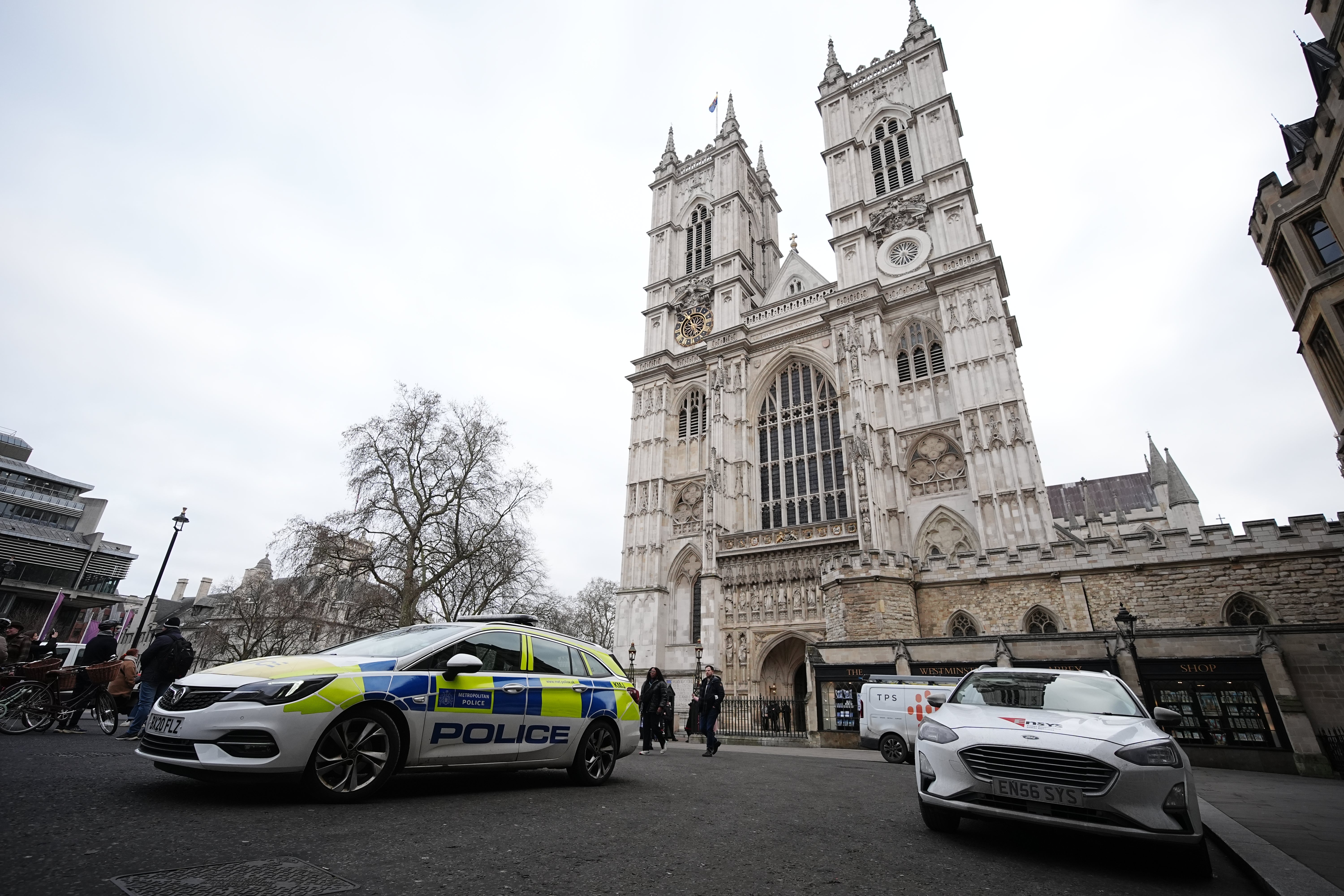Just Stop Oil protesters charged with spray-painting Charles Darwin’s grave in Westminster Abbey
Just Stop Oil claimed responsibility for the protest

Two women have been charged with criminal damage after Charles Darwin’s grave was spray-painted in Westminster Abbey on Monday.
The Metropolitan Police said Alyson Lee, 66, of Park Grove, Derby, and Di Bligh, 77, of Langham Place, Frome, will appear at Westminster Magistrates’ Court on 11 February and 12 February respectively.
The slogan “1.5 is dead” was marked in chalk paint on the 19th-century biologist’s grave at about 9.30am on Monday in a protest by Just Stop Oil.
Metropolitan Police led the two women out of Westminster Abbey and placed them under arrest “on suspicion of causing criminal damage with what is believed to be powdered paint at Westminster Abbey”. They have both been charged and bailed.
Climate protest group Just Stop Oil said that Ms Lee and Ms Bligh were at Westminster Abbey on Monday.
Ms Lee told PA: “We are trying to get the government to act on climate change. They are not doing enough.”
Ms Bligh explained the reason they chose Darwin’s grave was “because he would be turning in that grave because of the sixth mass extinction taking place now.
“I believe he would approve because he was a good scientist and he would be following the science, and he would be as upset as us with the government for ignoring the science.”
A spokesperson for Westminster Abbey said: “The abbey’s conservators are taking immediate action to clean the memorial and do not anticipate that there will be any permanent damage.
“The police were called to the scene and dealt with the incident. The abbey remains open for visiting and worshipping.”
The slogan refers to news from the EU’s Copernicus Climate Change Service on Friday that the world had missed the global goal to keep global heating within 1.5C, originally agreed by world leaders in Paris, 2015.
Analysis from the Met Office, University of East Anglia and National Centre of Atmospheric Science agreed that last year was the hottest on record and said it was “likely” to be the first year exceeding 1.5C.
Preventing global warming higher than 1.5C was one of the key commitments from the global Paris Agreement in 2015.
